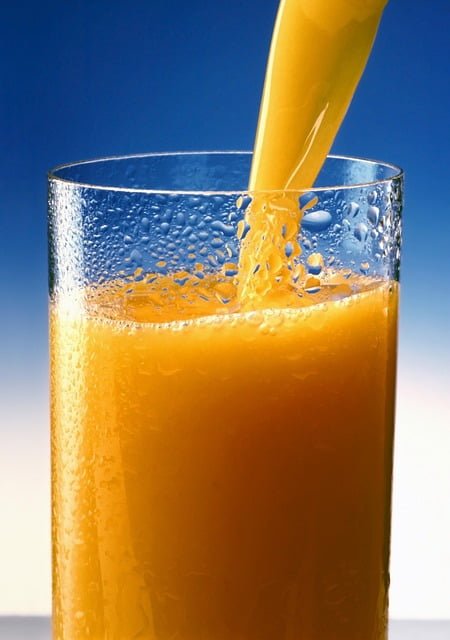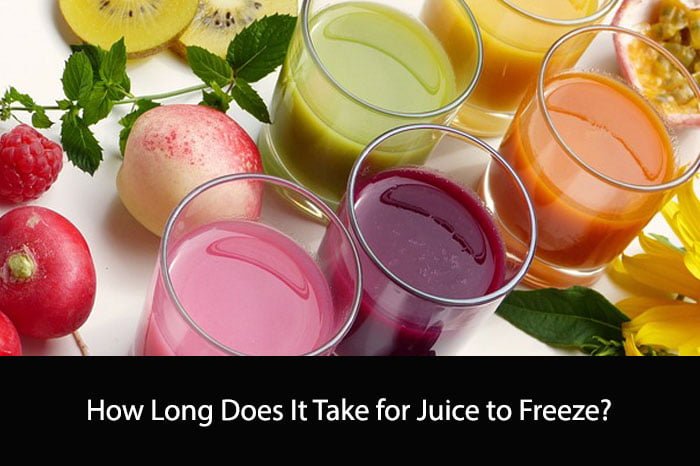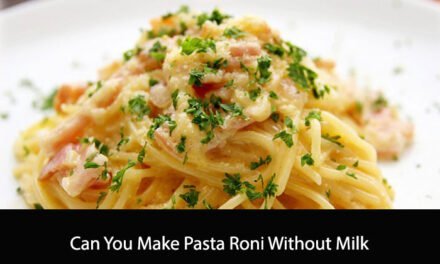The world of freezing and food science often leaves us with intriguing questions. Among them, the query of how long it takes for juice to freeze is one that piques our curiosity. Whether you’re planning to stock up on homemade fruit juices or simply wondering about the science behind frozen treats, understanding the factors influencing freezing times can shed light on this fascinating process.

The Basics of Freezing
Before we dive into the specifics of juice freezing, let’s understand the basics of freezing itself. Freezing is a natural process that involves lowering the temperature of a substance until it transitions from a liquid to a solid state. In the realm of food preservation, freezing plays a crucial role in maintaining the quality and longevity of various edible items.
Several factors impact the freezing process, and they hold the key to understanding why different juices might freeze at varying rates.
Understanding Juice Composition
Juices, though often considered as liquids, are complex mixtures with unique compositions. The primary component in most juices is water, but the water content can vary significantly depending on the type of fruit or vegetable used. Citrus juices, for instance, typically have a high water content, while juices from berries might contain less water due to their naturally thicker consistency.
Sugar and acidity levels also play a role in the composition of juices. These factors influence the taste, texture, and overall properties of the juice. Importantly, they also affect the freezing point of the juice.
Factors Affecting Freezing Time
Now that we’ve explored the basics of freezing and the composition of juices, let’s delve into the factors that determine how long it takes for juice to freeze.
- Temperature of the Freezer: The colder the freezer, the faster the freezing process. However, there’s a limit to how cold a typical home freezer can get without causing freezer burn or other undesirable effects.
- Container Choice: The material and thickness of the container holding the juice can impact freezing times. Thicker glass or plastic containers might slow down freezing, as they act as insulators.
- Juice Quantity: The volume of juice being frozen can affect the time it takes to freeze. Larger volumes will require more time to reach a solid state compared to smaller quantities.
The Role of Sugar and Acidity
The sugar and acidity levels in juices have a significant impact on their freezing points. The concept of freezing point depression explains how the presence of solutes (such as sugar and acid) in a liquid lowers its freezing point. This is why sugar-laden juices tend to freeze at lower temperatures than pure water. The same principle applies to the acidity of juices.
Experiment: Testing Freezing Times of Different Juices
To gain a better understanding of the variations in freezing times among different juices, a simple experiment can be conducted. Take various types of juices, record their initial temperatures, and place them in the freezer. Regularly monitor and record the time it takes for each juice to reach a fully frozen state. This experiment can reveal firsthand the impact of factors like water content, sugar, and acidity levels on freezing times.
Quick Freezing vs. Slow Freezing
When it comes to freezing, speed matters. Flash freezing, a rapid freezing technique, is often used in commercial settings to preserve the quality of fruits and vegetables. It involves freezing the produce quickly to minimize the formation of large ice crystals, which can damage cell structures and affect texture. Slow freezing, on the other hand, can result in larger ice crystals, potentially altering the texture and taste of the juice upon thawing.
Tips for Freezing Juice Effectively
For those looking to freeze juice at home, there are several tips to consider:
- Pre-freezing Preparation: Use ripe fruits and proper juicing techniques to ensure the best flavor and nutrient retention.
- Container and Packaging: Opt for suitable containers and portion sizes. Consider using airtight containers to prevent freezer burn.
- Labeling and Storage: Label the containers with the date of freezing and type of juice for organized usage. Follow recommended storage durations to ensure quality.
Beyond Freezing: Thawing and Usage
Thawing frozen juice requires some consideration. While the easiest method might be leaving the juice in the fridge, this slow thawing process can lead to texture changes and separation. Alternatively, using a microwave or countertop thawing can speed up the process but might require more immediate usage.
The thawed juice might exhibit changes in texture, but these can often be mitigated by stirring or blending.
Nutritional Considerations
Concerned about nutrient loss during freezing? Freezing can cause minor nutrient losses, but overall, the impact is relatively small. In fact, frozen fruits and vegetables can retain a substantial portion of their nutrients, making them a convenient and nutritious option.
Safety and Shelf Life
It’s important to note that while freezing preserves the quality of juices, it doesn’t make them immune to eventual degradation. Pay attention to signs of freezer burn, which can impact taste and texture. To maintain optimal quality, adhere to recommended storage durations and conditions.

Conclusion
Understanding how long it takes for juice to freeze involves unraveling the intricate interplay between temperature, composition, and freezing dynamics. By considering the properties of different juices, experimenting with freezing times, and applying practical tips for effective freezing and thawing, you can enjoy the convenience of frozen juice without compromising on taste or nutrition. So, whether you’re preparing for a hot summer day or aiming to enhance your culinary creations, embracing the science of freezing can yield delightful results.





